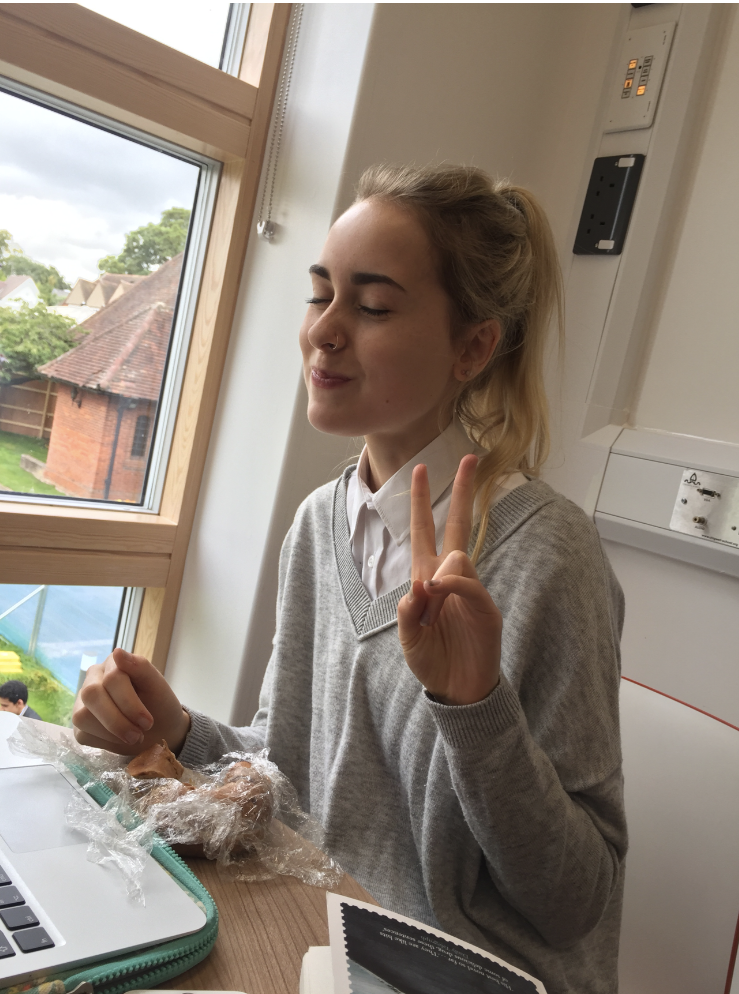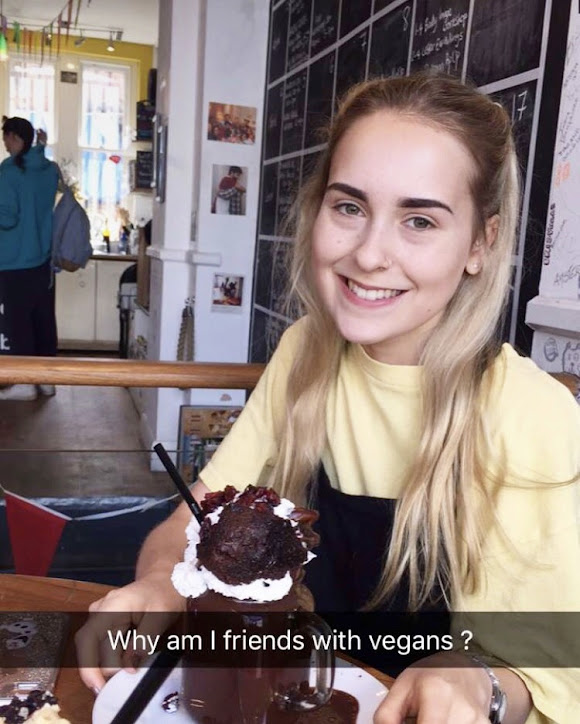So often when it comes to eating disorder awareness there is a focus on what it’s like for the sufferer at their lowest of lows as opposed to the reality of what it is like going through recovery. I decided to write this blog post to provide insight into my own experience of being in recovery from anorexia for the past (almost!!) four years. This is a very vulnerable post so please, if you are currently struggling, feel free to skip reading this.
TRIGGER WARNING: Eating disorders, depression.
“But more painful are the proliferous small, personal moments of despair. Crying quietly in a department store changing room, perplexed by my inability to recognise the swollen figure crying quietly back at me from excessive mirrors. Crying louder when asked what’s wrong, unable to put into words the yawning pain of having gained so much but lost everything in the process.” Tucker, Nancy. The Time In Between: A memoir of hunger and hope.
Giving up, seventeen, sitting on my bed and unable to look after myself. I was completing my first year of A-Levels; a mammoth task in itself. Yet, faced with the idea that I might once again need an inpatient admission for my rapid physical deterioration with anorexia, I saw no way out. Part of me could not face the thought of another day. Sick and tired of being a burden on everyone and, in particular, my poor family. At this point, I had discharged myself from the child and adolescent Mental Health Service (CAMHS) as their form of treatment had never worked for me. Being weighed each week and made to focus on (what they saw as progress aka weight gain) either the progress I had made or the opposite did not bode well with me. Put it bluntly, if I had gained weight, I would be non-compliant, and then, if I had lost weight, the anorexic voice would be overjoyed. This is typical behaviour for someone, such as myself, battling anorexia.
Whilst you so desperately want to get better in the sense of being free of the semi-life that anorexia grants you, there is no way to fathom letting go of your thinner body. It becomes your new identity, an invisibility cloak from the world’s problems. Being so consumed by the space you take up, there is little other space to think of worldly matters. Anorexia gives you no personal space. It simply implodes your every existence.

Yet, taking myself back to that moment, I remember how lost I felt. I could no longer feed myself- I would only eat if forced under supervision. Any other approach left me throwing food away and becoming a compulsive liar. I hurt many. And worse, I was so done with my own self that I contemplated ending it all. If something did not change soon, I vowed to myself that I would have to pull the plug.

Fast-forward to July 2021, a few months shy of 4 years since that period of seventeen-year-old Isabella, and I am lucky enough to be telling my story. I know I am lucky because every 62 minutes someone dies from an eating disorder. I will never stop telling my story until one day that statistic does not exist.
My experience of choosing recovery was not plain sailing. I did not have the glorious “lightbulb moment” that is spoken of. Instead, I faced a period of utter lowness that led me to do something different. By convincing myself I was not in recovery, nor never would be, was the reverse psychology that worked to fool my anorexia into thinking that we could live together. Living a double life, convincing the voice that we could still be friends, whilst at times hurting it through doing the hard thing (eating the bagel on my own). At first, this strategy seemed to work. Like how I had first fallen into this restriction diet cycle, I was convincing myself that it would be a short term thing. Trying to increase my intake, look after myself and reintegrate myself into a society where I was not first and foremost concerned with the food I could and could not eat.
Not before long, I realised that I could not have my cake and eat it (the irony). You cannot pretend to be friends with anorexia and choose recovery. Like they often say with drug or alcohol addiction, most of the time, it only works when the individual prioritises sobriety and being clean in order to truly recover. The same applies with anorexia: you either choose to recover and essentially attempt to “let go” of the eating disorder, or you maintain its cold grip over you.

Ever since I did make the decision to recover from my anorexia it has all been great. I’ve gained weight. I’ve gained happiness and now I am fixed!
These are the assumptions that come from someone who does not understand an eating disorder nor what it is like to recover from one.
Choosing recovery felt like giving up my entire identity. I had let anorexia into my life for eight years (well, five at that point), to give it up, was to grieve a version of myself. Despite all the hurt it has created me, the friendships it has ended, the months spent in a unit, nights spent with a paramedic next to my bed, I still could not let go of it. Letting go came when I realised that it will always be a part of me. I will never completely “give it up”, be tee-total or without my anorexia, instead, I have learned to live a better life where it is not my sole identity.

Recovery from an eating disorder can feel like trying to catch a bar of soap in the bath. Every time you just about think you are getting stronger at catching the soap, a sudden movement occurs and it falls through your fingers and into the water. There have been many trying circumstances that have often provoked me to think: “wouldn’t it just be better if I could starve myself again”. It is at that point I have to tell my Mum, sister or friends and say, “Look, I really am struggling. I want to relapse.” If that conversation does not happen, I am in danger of becoming the shy seventeen-year-old girl again. The girl who prioritizes the anorexic voice over everything. It is in communication that I have learned to lean on others for help. We are all only human and we all struggle. Do not be so hard on yourself (Isabella included!).

One of the hardest parts of making the decision to choose recovery has been around undoing old behaviours. When you are so used to doing the thing that the voice once told you to do, take skipping a meal, it is eating through the urge to do that which was difficult. Knowing I had to go against the way my brain had been wired for a very long time was a challenge. Yet, in the long run, no struggle, no progress. It is through resisting those toxic urges that I grew to become a much stronger individual.
I am constantly learning through recovery. I have found a new passion that I never knew I had for fear I was once never well enough to do it. I have achieved so much – a first-class degree from Warwick being the one I still pinch myself about. If I had chosen to pursue a life of restriction, in and out of hospital, where would I be right now? I often ask myself that in low periods. Even when the ghostly remains of my illness tries to convince me that I would be better off going backwards, I continue to fight.
Because, yes, though I am in recovery, I still suffer from indescribably low points. Sometimes I try on clothes that used to fit me in “bad days” and find that my body has changed in ways that I never wanted to. I cry. I feel horrific and want it all to be over. I feel a fraud to no longer be within a sickly thin body. Sometimes I look at old pictures and feel envious. I crave what I once was. I used to feel a sense of achievement and pride at living off so little.
Yet, was I truly living?
Is the pursuit of taking up so little space living? By reflecting on the past rose-tinted glasses, I rewrite my anorexic days as glory days – they certainly were not. Those times were awful, grim and blurry. I remember feeling cold, missing school because of appointments, blood tests. Watching everyone play sports whilst I sat in a chair, too weak to participate. Just beginning that list reminds me of how little joy I used to have at that point in my life. It was just a chaotic mess of someone who had completely lost their way. Those times feel distant to me now.

And no, it is not all about food. Recovery is not simply about eating the food and gaining weight. Yes, a part of recovery is restoring the weight you deprived your body of, but more importantly, it is about facing what was behind the behaviours that made you develop an eating disorder. Emotions are a blurry part. Tackling those feelings which you used to dig deep within yourself have to be bought back up. It is about riding the strange wave of fear, sadness, guilt and shame and accepting that they are all valid feelings to have. You are allowed to feel. You do not have to bottle it up within every orifice of your body. There is no glory in keeping it all in.
Of course, I know that without recovery I would never be able to enjoy food the way I can now, but I disagree that the emphasis of recovery is all about the food. There is a mystery around what we all eat in a day and I would prefer to keep it that way. There is much more to recovery, just as there is more about an eating disorder than simply food.
“Behind the diagnoses – or beyond them? – there is still a Person, and there is still a Life. I am not a Voice, but I do have a Voice. A Voice entirely my own.” Tucker, Nancy. The Time In Between: A memoir of hunger and hope.
Perhaps a few of you reading this might find that some of your own misconceptions around anorexia can be altered. That is only ever my goal – to motivate, inspire and educate. And if you are currently struggling or know someone struggling, know that I am always here supporting you. Having gone through the battle, and still carrying it around with me after eight years, I truly understand what you are going through.
Just know, you will never make a better decision from the day you choose recovery. It will be hard, I am not going to deny that but it will be worth it. Hey, I am living proof of it.
All my love,
IVC